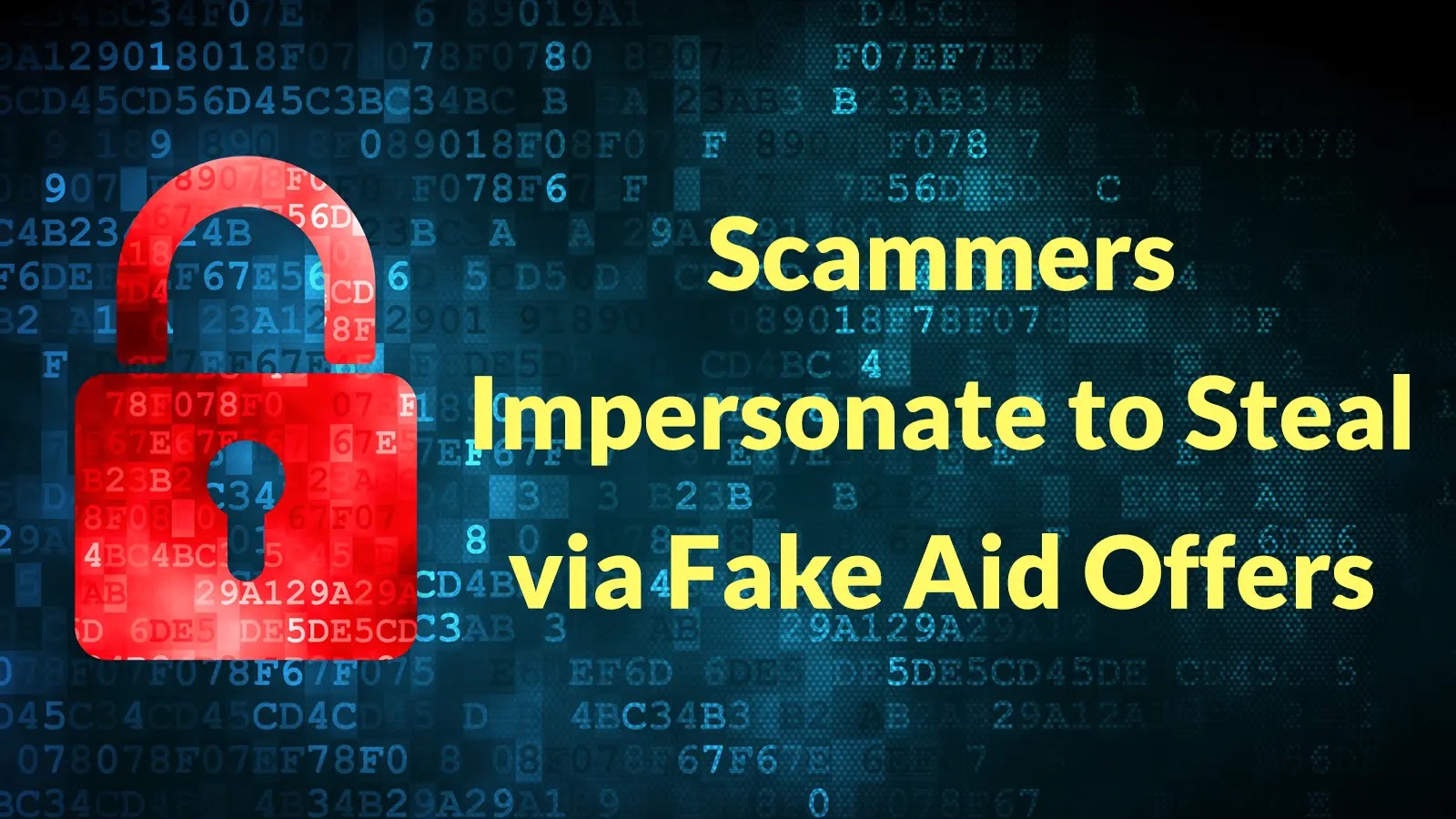
Threat Actors Tricks Target Users Via Impersonation and Fictional Financial Aid Offers
Unmasking “Vulnerability Vultures”: The Sophisticated Scam Operations Targeting Our Most Vulnerable
The digital landscape is a battleground, and increasingly, the most sophisticated threat actors are setting their sights on vulnerable populations. A pernicious new campaign, aptly dubbed “Vulnerability Vultures,” has emerged as an international ecosystem of highly organized scam operations. These campaigns leverage insidious impersonation tactics and enticing, yet entirely fraudulent, financial aid offers to ensnare unsuspecting individuals, primarily focusing on older adults.
The financial and emotional toll of these scams is substantial. Data from the FBI’s Internet Crime Complaint Center (IC3) starkly highlights this grim reality: individuals aged 60 and above consistently report the highest number of complaints related to cybercrime. This demographic, often possessing accumulated wealth and potentially less familiarity with the nuances of online deception, presents a lucrative target for these predatory threat actors.
The Deceptive Playbook: Impersonation and Fictional Financial Aid
At the core of the “Vulnerability Vultures” strategy are two potent weapons: masterful impersonation and the promise of irresistible financial relief. Threat actors meticulously craft their schemes to appear legitimate, often mimicking official organizations, government agencies, or even trusted charities. Their goal is to erode trust and create a sense of urgency or opportunity that bypasses critical thinking.
Impersonation Tactics:
- Government Agencies: Scammers frequently pose as representatives from bodies like the IRS, Social Security Administration, or even local law enforcement. They might claim a penalty is due, an account needs verification, or an arrest warrant is impending, pressuring victims into immediate action.
- Financial Institutions: Phishing emails or calls purporting to be from banks, credit card companies, or investment firms are common. These often alert victims to “suspicious activity” or “account freezes” to trick them into revealing sensitive financial information.
- Charitable Organizations: Following natural disasters or global crises, threat actors quickly establish fake charities, preying on the goodwill of individuals. They solicit donations under false pretenses, diverting funds intended for genuine relief efforts.
- Tech Support Scams: Impersonating reputable tech companies, these scammers claim to detect critical issues on a victim’s computer. They then demand remote access or payment for unnecessary “fixes,” often installing malware in the process.
Fictional Financial Aid Offers:
Beyond impersonation, the allure of significant financial aid is a powerful motivator for victims. These offers are designed to exploit financial vulnerabilities or aspirations, creating a false sense of opportunity:
- Grants and Loans: Threat actors advertise non-existent government grants, low-interest loans, or “COVID-19 relief funds” that require an upfront “processing fee” or personal information for eligibility.
- Investment Opportunities: Highly lucrative, but entirely fictional, investment schemes are promoted through sophisticated websites and persuasive communication, often guaranteeing unrealistic returns. These are frequently ponzi schemes in disguise.
- Inheritance Scams: Victims receive unsolicited communications claiming they are beneficiaries of a large inheritance from a distant relative, requiring personal details and upfront legal fees to “release” the funds.
Why Older Adults Are Prime Targets
The focus on older adults by “Vulnerability Vultures” is not coincidental. Several factors contribute to this demographic’s heightened susceptibility:
- Accumulated Wealth: Older individuals often control significant assets and savings, making them attractive financial targets.
- Digital Divide: While many older adults are tech-savvy, a segment may have less exposure to evolving cyber threats and sophisticated online deception techniques, making them less equipped to identify phishing or scam attempts.
- Social Isolation: Some older adults experience social isolation, making them more receptive to unsolicited contact and the human connection that scammers often feign.
- Trust and Politeness: A generation often characterized by politeness and trust can be hesitant to question authority figures or seemingly helpful individuals, a trait exploited by impersonators.
- Fear of Authority: Threats of legal action or financial penalties from purported government agencies can induce panic and lead to hasty, ill-advised decisions.
Remediation Actions and Protective Measures
Protecting ourselves and our vulnerable loved ones from “Vulnerability Vultures” requires a multi-faceted approach, combining cyber hygiene with proactive communication and education.
- Verify, Then Trust: Always verify the legitimacy of any unsolicited communication, especially those requesting personal information or demanding immediate action. Use official contact information from known sources (official websites, statements) rather than numbers or links provided in suspicious messages.
- Be Skeptical of Unsolicited Offers: Assume that any email, text, or call offering significant financial aid, lottery winnings, or unexpected windfalls is a scam. Legitimate financial assistance rarely comes unsolicited or requires upfront payments.
- Never Share Sensitive Information: Government agencies and legitimate financial institutions will NEVER ask for your Social Security number, bank account details, or credit card numbers via email, text, or phone call.
- Strong Passwords and MFA: Implement strong, unique passwords for all online accounts and enable multi-factor authentication (MFA) wherever possible. This adds a crucial layer of security, even if credentials are compromised.
- Educate and Communicate: Regularly discuss common scam tactics with older family members and friends. Encourage them to be suspicious, to ask for help, and to report any suspicious activity.
- Use Reputable Security Software: Ensure all devices are protected with up-to-date antivirus and anti-malware software.
- Report Suspicious Activity: If you or someone you know encounters a potential scam, report it to the FBI’s Internet Crime Complaint Center (IC3) at https://www.ic3.gov/ and the Federal Trade Commission (FTC) at https://reportfraud.ftc.gov/.
Tools for Enhanced Digital Security
While vigilance is paramount, deploying the right digital security tools can significantly bolster defenses against these sophisticated threats.
| Tool Name | Purpose | Link |
|---|---|---|
| Password Manager (e.g., LastPass, 1Password) | Securely store and generate strong, unique passwords; facilitate MFA. | https://www.lastpass.com/ https://1password.com/ |
| Reputable Antivirus/Anti-Malware Software (e.g., Bitdefender, Malwarebytes) | Detect and remove malicious software, protect against phishing sites. | https://www.bitdefender.com/ https://www.malwarebytes.com/ |
| Ad Blocker / Browser Extensions (e.g., uBlock Origin, Privacy Badger) | Block malicious ads and trackers that can lead to scam sites. | https://ublockorigin.com/ https://privacybadger.org/ |
| Two-Factor Authentication Apps (e.g., Authy, Google Authenticator) | Generate time-based one-time passwords for enhanced login security. | https://authy.com/ https://authenticator.google.com/ |
Key Takeaways: Fortifying Defenses Against Deception
The rise of “Vulnerability Vultures” underscores a critical evolution in the threat landscape. Sophisticated scam operations, leveraging impersonation and fictional financial aid, are systematically targeting vulnerable populations, particularly older adults. Understanding their tactics, fostering a culture of healthy skepticism, and implementing robust security practices are paramount.
Proactive education, open communication within families and communities, and the judicious use of security tools are our strongest defenses. It is imperative that we remain vigilant, question unsolicited offers, and verify information through trusted channels to protect ourselves and those most susceptible to these predatory schemes.





